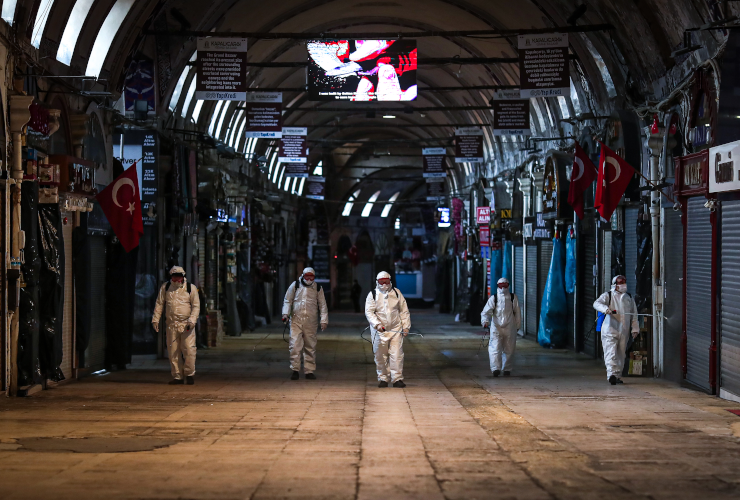2020 represents the 35th year of my career in journalism. During this time I have witnessed countless crises, from first-hand and from afar. I’ve experienced situations where I’d thought, “It couldn’t get any worse than this” – only for it to promptly do so. Yet I never imagined I would see such extraordinary days as these.
Every country began to take the pandemic seriously at different times and responded with different measures. As each country focuses on managing the different phases of the crisis, international solidarity has fallen and the future has become very, very uncertain.
This period is yet another test that we journalists have to rise up to meet and overcome.
The Western media (Europe, USA), at least according to the trusted channels I follow, seem to have performed surprisingly well so far. Without any doubt, there are many gaps and mistakes but I truly appreciate my Western colleagues’ coverage and ability to feed the public with fast, careful and satisfactory information during such an unexpected emergency.
Unfortunately, I cannot say the same thing for Turkey. Those who rule the country have underperformed and failed to recognize the gravity of the situation. Turkey’s media are also struggling to understand and present the bigger picture and provide the public with the information they need to survive the crisis.
I do not claim it is an absolute failure but I think Erdoğan’s government has been too timid in its response to Covid-19 so far. The pandemic comes at a difficult time amidst a deep economic crisis. Moreover, Erdoğan’s one-man-rule has been going through a serious ideological-political crisis as demonstrated by the main opposition party, CHP, winning the most important city elections last year.
Erdoğan has systematically reversed many of Turkey’s achievements in areas such as democracy, fundamental rights and freedoms and the rule of law. This is most visible in press freedom. Everbody knows now that Turkey has, for decades, led the way on violations of press freedom. But one of the most important elements observers from abroad miss is that a considerable portion of the media is under the direct control of the ruling political party, and therefore of Erdoğan.
It is argued that following the sale of Doğan Media Company, Turkey’s largest media group, to Demirören Holding in 2018, up to 90 percent of the media is now under government control. The remaining media outlets are under huge political pressure while also facing severe economic problems. However, the combined efforts of independent, online media outlets and “citizen journalism” on social media does provide a limited space for journalists to breathe.
Turkey first saw the pandemic as a “Chinese product” and the mainstream media helped to spread deceptive statements of so-called experts’ such as “this is the work of drug cartels”, “nothing happens to Turks” or “if you eat this, you won’t get infected”.
When things turned serious in mid-March, in an unusual precedent for this administration, Erdoğan stepped back and put up the minister of health, Fahrettin Koca, to inform the public of the government’s response. His presence has brought a surprisingly calming attitude and some level of transparency. We also saw how the media, whether pro-government or not, adopted a hesitant and uncertain approach. There have also been a number of incidents during this time of journalists being detained when trying to report infections and deaths that go beyond official statements.
At the end of March, however, things changed when first the CHP mayor of Ankara, Mansur Yavaş, swiftly followed by his colleagues in Istanbul and İzmir, Ekrem İmamoğlu and Tunç Soyer, started public campaigns to support the poor and most vulnerable. This forced Erdoğan out of his low-profile strategy to launch a national aid campaign fearing a swing in political support towards the opposition and blocking the campaigns of opposition mayors in the process.
On the one-year anniversary of the local elections, it is clear that Turkey has entered an entirely new era with the fight against Covid-19. The longterm strategy of polarizing the public by Erdoğan and his supporters, which momentarily looked to have been paused due to the pandemic, may now be revived. The job of journalists who also suffered from the initial nationwide shock and inertia will be much more difficult from now on. We can expect a new wave of crackdowns against journalists and media. And in these times, as all states close up to focus on the crisis at home, Turkey’s journalists and media outlets that insist on doing their job and producing quality work might become even more lonely.




